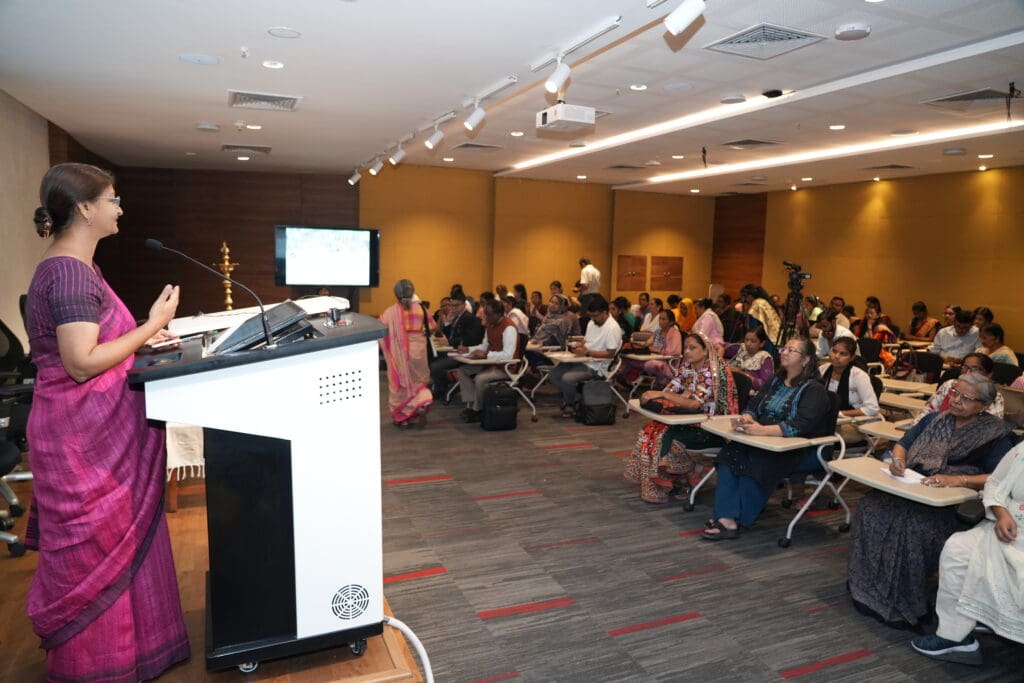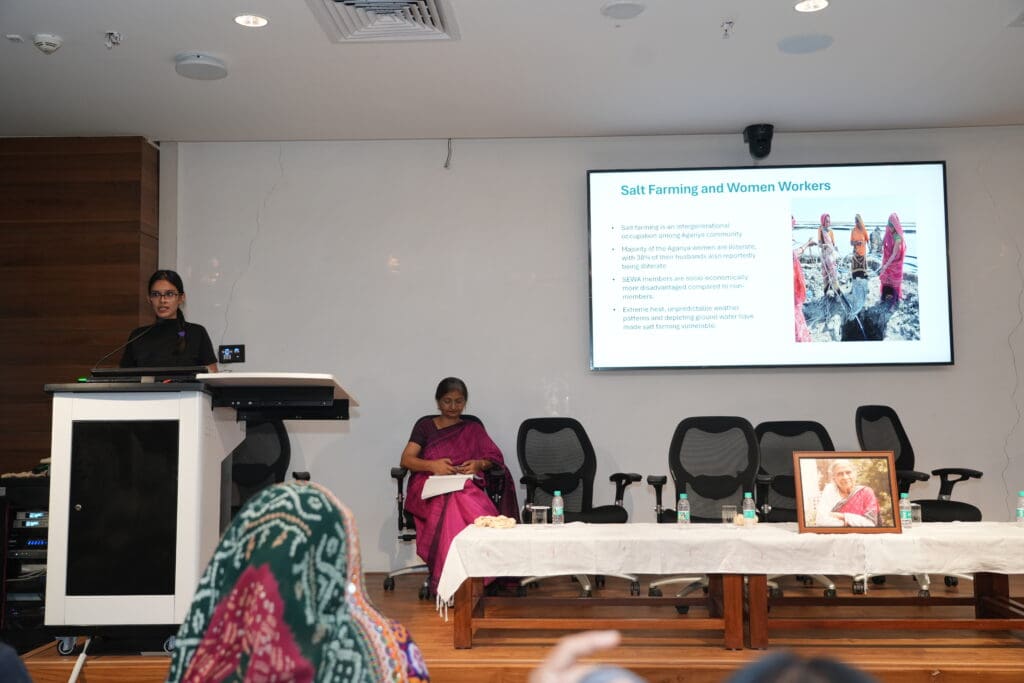
Voices of Women Farmers Take Center Stage in Climate and Food Systems Governance
Media Contact
On July 24-25, 2025, the Self-Employed Women’s Association (SEWA) hosted the National Consultation of Family Farmers on UN Processes to amplify the role of family farmers in building resilient food and climate systems in India. Representatives from farmers’ organizations, civil society groups, government, UN, and academia engaged in meaningful dialogue on strengthening sustainable agriculture, biodiversity conservation, and climate action. The consultation elevated women farmers’ voices and leadership to guide grounded implementation and progress on the UN Decade of Family Farming, UN Forum on Sustainability Standards, UN Convention on Biological Diversity, and Conference of the Parties (COP30).
Through the What Works: Women and Climate Change portfolio, ICRW-Asia, supported by the Rockefeller Foundation, has partnered with SEWA to examine the socio-economic and climate-related implications of women salt pan workers’ transition from diesel to solar-based salt farming in the Little Rann of Kutch, Gujarat. During the consultation, the ICRW team presented emerging insights from this research and moderated a session on climate resilience and carbon dioxide reduction.
Why Family Farmers Matter
Smallholder family farmers produce diverse crops, including food crops, for millions of people. They are vital to building sustainable, inclusive, and climate-resilient economies and food systems. They contribute to conserving agrobiodiversity, restoring soil health, and mitigating climate change. Yet, they remain among the groups most vulnerable to the impacts of climate change, biodiversity loss, and energy crises.
The Post-2020 Global Biodiversity Framework recognizes the essential role of local communities as custodians of natural resources. In this context, ensuring farmers’ meaningful engagement in programs and decision-making processes is critical to both leveraging their solutions and addressing their realities.
Key Discussions at the Consultation

The sessions explored a wide range of themes, from biodiversity, ecosystem restoration, and nutrition to market access, value chains, and youth enterprises, to gender equality, farmers’ rights, and governance, and highlighted:
- Climate finance: Stakeholders discussed the imbalance in climate financing. Funds are concentrated in developed countries, with a greater focus on mitigation (linked to profits from green technologies) than on adaptation. While India is charting sustainable pathways, increased private sector participation and investments are needed to fill the existing gaps. A robust national adaptation strategy is also underway.
- Women’s experiences of climate hazards: Across India, women face disproportionate climate burdens. In Kutch, Gujarat, for instance, women struggle with drinking water shortages. In Ladakh, water scarcity and drying natural springs threaten agriculture, though solar energy has emerged as a promising solution for heating and lighting in the region. In Uttarakhand, soil degradation and reduced yields in the hills have led to the abandonment of villages. These experiences, shared by women farmers from diverse agro-climatic zones, underscore the urgent need for contextual, gender-responsive climate action.
- Role of civil society and collectives: SEWA and other civil society groups, through long-term grassroots engagement with women, have anchored in the ethos of jal, jeevan, jungle [water, life, forests]. Some of the examples shared included local check-dam construction, resource governance initiatives like paani panchayats [water panchayat] in Odisha and West Bengal, and women-led water governance through Jal Saheli and Jal Sakhi programs, which emphasize and bolster community participation and resource governance at the local level. Academic partnerships, with institutions such as ICAR-CIWA and the UN, were also cited as strengthening women’s ownership and adaptive capacities.

Looking Ahead
A significant outcome of the consultation was a participatory session, led by a representative from the Ministry of Environment, Forest and Climate Change, where stakeholders contributed to drafting key policy recommendations. The session highlighted the importance of ensuring that national adaptation plans incorporate smallholder realities and promote green technologies, organic practices, insurance access, and climate finance. These recommendations will be compiled and submitted to policymakers.
As India prepares for the next decade of climate and food systems governance, ensuring the voices of family farmers, and particularly women farmers, are heard and acted upon will remain central to building just futures. Their knowledge, lived experiences, and collective action in governing natural resources offer vital pathways to locally-led climate resilience and sustainable food systems.
